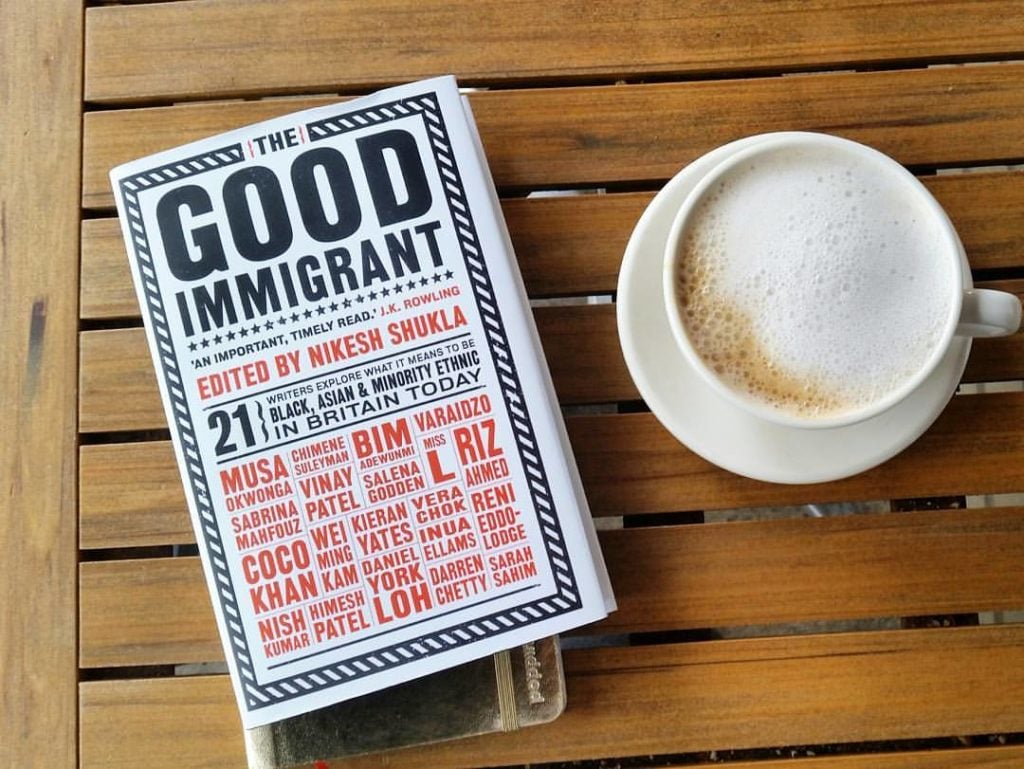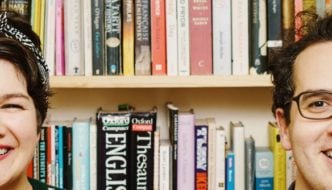
Photo Credit: Jugni Style
In an intimate space in Deansgate, I spent an eye-opening evening hearing four authors reading extracts from their respective works, collated by Nikesh Shukla in The Good Immigrant. Each reader depicted their childhood and experience as an immigrant growing up in the UK through essays and letters. All of them were emotionally provocative in different ways: some shocking, others heart-breaking, as well as a good dose of comedic relief. Growing up as the daughter of two immigrants myself, I can vouch for how hilariously accurate their portrayal of growing up as an outsider can be. The problematic notion of The Good Immigrant was explored by each author with a unique insights into the reality of growing up as part of a minority in Britain.
Himesh Patel. Essay titled ‘Window of Opportunity’
Patel began by beautifully describing his tranquil upbringing in rural Cambridge, recalling how, unlike his Asian counterparts who lived in bigger cities such as London or Birmingham, he never at one point during his childhood felt ostracised. However, even though he was never exposed to racism as a child, he did acknowledge that he always knew things weren’t quite right, emphasising that as part of a minority ethnic in Britain, you give up integral parts of your life (for Himesh, Bollywood movies) which in another world you would never consider having to do. He questions how much we really do leave behind, particularly subconsciously, when we or our past relatives choose to literally leave behind our ‘homeland’.
Nikesh Shukla. Letter to daughter titled ‘Namaste’
This is a letter principally about language and its importance in a world where impulsive judgement is more ingrained than ever and insults often come easier than an open mind. It is, vitally, a letter about how carelessness really is a big deal. For example, he recalled a particular experience at an ‘Indian’ restaurant in London, where he had a failed attempt at confronting the white English owner on the fact that one of his chicken specials actually translated to ‘chicken pants’ in Gujarati. Amid the last echoes of ringing laughter from his audience, he abruptly turns serious: “Words matter“, he says. And he is totally right: Why is it okay that British people often allow these blunders without a second thought – yet mock, or even feel their racist prejudices validated, when such an error in translation comes from an immigrant? Perhaps his most powerful point, though, was on the subject of ‘debating’ the immigrant/race issue. The current climate on such a topic is red hot. With figures such as Trump as possible wielders of unlimited power, and in the wake of record-breaking reports of racial abuse in a post-Brexit Britain, we live in a world that is uncertain for ‘minorities’. Are they wanted, or are they not? Do they add to a land, or do they take from it? Shukla explores these troubling questions through his letter to his young daughter. But it was one particular line that he read that really struck a chord for me: “White people DEBATE it, we LIVE it.”
Miss L. Essay titled ‘The Wife of a Terrorist’
Miss L is a rising blogger, known currently for her satirical and popular blog on tumblr, ‘@castingallwoe’ (check it out – it’s hilarious). Her essay, however, takes on a more serious edge. The title was inspired by a part she was given while at drama school, where she was working hard to shake her stereotype of being cast in typically Asian roles. So far, she had succeeded in doing so—having even been cast as Jack Frost at one point a character, she jokingly reflects, who is ‘the whitest man alive’ that someone could possibly play. However, the essay focuses on the tide of emotions that she experienced in the aftermath of being cast as ‘the terrorist’ in front of her peers, which then evolved into the role of the ‘wife’, (as she was a female Asian, after all). Having to hear the feelings she endured – of deep frustration, guilt and later acceptance – evoked in the audience an understanding of her need to be seen as more than just a girl with a certain skin type. Miss L’s talent as an entertainer is as clear as the injustice she was served that day: she makes us laugh – a lot – but she also forces us to confront the deep-seated racism that is going to continue to prejudice us if we let it.
Inua Ellams. Essay entitled ‘If Africa was a bar?’
Last but definitely not least, Inua Ellams, of Nigerian origin, charms us as equally as Patel did with his story of how he ended up here in the UK, allowing us comical snippets of what growing up ‘different’ was like for his generation, involving how difficult it is for a young black guy to get a haircut in 1980’s Dublin. However, the bulk of his piece narrates his travels through Africa, where he aimed to revisit his roots and find out what this huge continent is really all about. He captures the differences between each country so beautifully, most significantly throwing into sharp relief how lazy we are in so consistently grouping ‘black’ people as ‘African’. Would we ever say an Italian was the same as a Russian? It is Ellem’s view that we have to start seeing people as individuals – rather than basing them on a laughably wide categorisation – and then we will begin to open a world in which beauty and success is unlimited.
This event eloquently laid bare how racism, in its various manifestations, still takes a toll on immigrants and raises some important questions about the pressure on minorities to impress the majority.
Filed under: Written & Spoken Word
Tagged with: books, essays, Himesh Patel, immigration, Inua Ellams, Manchester Literature Festival, McrLitFest, Miss L, MLF16, Nikesh Shukla, Racism, The Good Immigrant, xenophobia



Comments